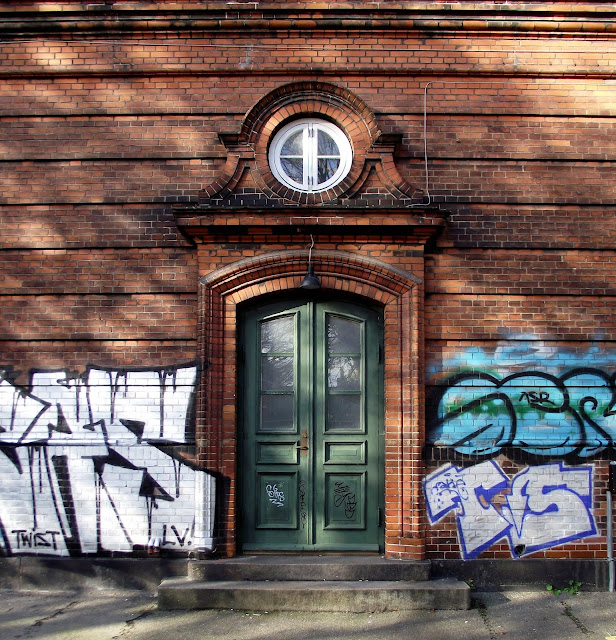Archaeology : Architecture : Art : Cold War : Curiosities : Design : Eccentricities : Ekco : Engineering : Industrial Heritage : Military : Petroliana : Photography : Shed Wonders : Transporter Bridges : Vintage Technology
28 October 2019
Freetown Christiania
Christiania, now covering about 19 acres of the military barracks of Bådsmandsstræd (abandoned from 1967), and remnants of the city ramparts, in the Christianshavn area of Copenhagen, was squatted in 1971.
A mission statement was co-authored by the journalist Jacob Ludvigsen: "The objective of Christiania is to create a self-governing society whereby each and every individual holds themselves responsible over the well-being of the entire community. Our society is to be economically self-sustaining and, as such, our aspiration is to be steadfast in our conviction that psychological and physical destitution can be averted."
The residents developed their own set of rules: no stealing, violence, guns, knives, bullet-proof vests, hard drugs, or bikers' colours. Known also as Freetown Christiania, the commune's cannabis trade was largely tolerated by various Danish governments, some of which saw the area as an interesting social experiment.
Since 1994 the residents have paid taxes for services such as water, electricity and rubbish disposal. The area's open but illegal cannabis trade was ended in 2004, after which outside biker gangs vied to take over the market.
A Christiania resident was killed in April 2005 as a consequence of the resulting violence. The weed trade recommenced, and has operated ever since, other than subsequent to a shooting in 2016 and for a while after police raids.
Since 2010 matters have settled somewhat, and Christiania now operates (largely) under Danish law. Some of the buildings, including the Grey Hall riding house (used as a concert venue), the half-timbered Commander's House, and the 17th and 18th century powder magazines, were listed in 2007 by the National Heritage Agency.
The area was closed to the public by the residents in June 2011, but a year later they set up a collective fund to enable purchase of the land from the defence ministry, making the commune the landowners. No private cars are allowed within the commune, which is currently home to about 900 people.
Labels:
Architecture,
Art,
Eccentricities,
Photography
Subscribe to:
Post Comments (Atom)








No comments:
Post a Comment